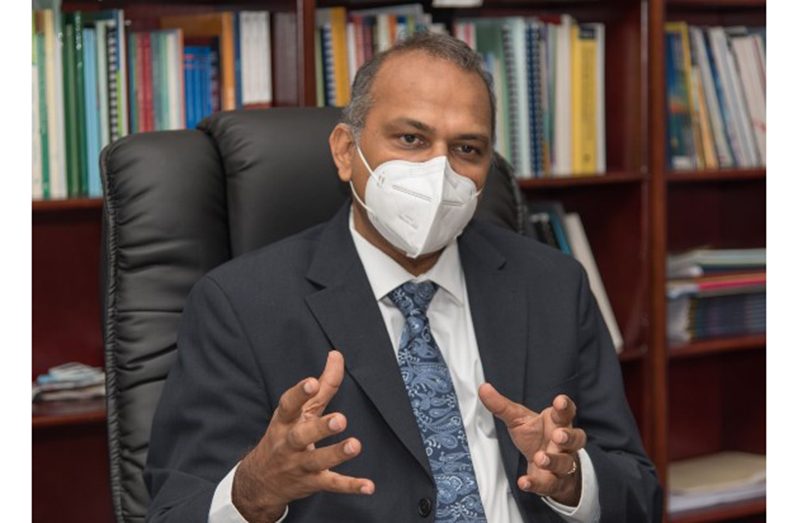– after spike in COVID-19 cases
By Navendra Seoraj
AUTHORITIES have dispatched mobile testing units to Diamond and other communities on the East Bank of Demerara (EBD), as part of efforts to curtail the spread of the novel coronavirus (COVID-19) in those areas.
Diamond, in the early days of the pandemic, had been a known hotspot for COVID-19, accounting for several of the cases in Region Four (Demerara-Mahaica). Although authorities had managed to arrest the situation, the disease has again made its way into the community.
With the aim of addressing the resurgence of cases, health authorities have dispatched a mobile testing unit to accumulate samples and set the foundation for a proper analysis of the situation.
“We have sent it (mobile unit) into Diamond and surrounding communities… There has been a spike in cases there, so it is important to get a better picture of what is happening with the epidemic. And the way to know, is to do more testing, hence we sent it (mobile unit),” said Minister of Health, Dr. Frank Anthony, during Wednesday’s edition of the COVID-19 update.
Mobile units were initially introduced early in the fight against COVID-19, to ramp up screening and testing and also to effectively control the spread of the coronavirus by having more people know their status.
These units were found mainly in Region Four, as this region accounted for, and still accounts for, most of the COVID-19 cases. Available statistics show that this region has 2008 cases, 25 more than it had on Tuesday.
While authorities did not specify the location of those new cases, the mobilisation of testing units in EBD communities is an indication of where the hotspots are.
Following behind Region Four are hinterland regions, which have also been heavily impacted by the COVID-19 epidemic. Among the regions severely affected are Regions One (Barima-Waini) with 754 cases; Seven (Cuyuni-Mazaruni) with 377; Eight (Potaro-Siparuni) with139 cases; and Nine (Upper Takutu-Upper Essequibo) with 376 cases, collectively accounting for over 38 per cent of the country’s 4,324 cases.
While not directly referring to those regions on Wednesday, Minister Anthony said mobile units, in addition to being dispatched across Region Four, will also be sent to other regions and communities in order to “get a sense” of what is going on.
EASY ACCESS
“When a unit is put in a community, it is easy for people to access testing, so it essentially encourages people to come out and get tested,” said Dr. Anthony.
It was reported recently that as part of efforts to improve and increase testing for COVID-19 in hinterland communities, local authorities have sourced 20,000 antigen tests, which will produce results within minutes.
And as it is now, testing for COVID-19 is done centrally at the National Reference Laboratory in Georgetown. Authorities would first have to acquire a sample from a person suspected to have COVID-19, and then send the sample to Georgetown, where medical professionals will conduct a Polymerase Chain Reaction (PCR) test, which takes hours to produce results.
“We have ordered the antigen tests. This is not the PCR test; it is done right at the site, once you suspect COVID-19… you run the test and get it back within 45 minutes,” said Dr. Anthony, adding that each hinterland community is already equipped with fixed sites for testing.
Authorities have also started the process of establishing COVID-19 Intensive Care Units (ICUs) across the country, to ensure that patients, in need of intensive care, are able to access it easily.
“We are sending out ventilators to regional hospitals… so far Region Six (East Berbice-Corentyne) has already received their ventilators and they have installed and tested them…the same has happened in Region Two, and Region One will have to uplift theirs,” said Dr. Anthony.
Other regional hospitals were also encouraged to uplift their ventilators and, in some cases, oxygen concentrators.



.jpg)











